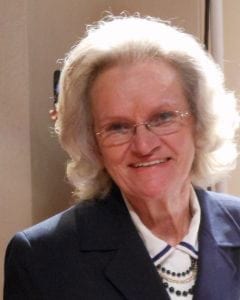There are people in society who seek to divide us based on what our differences are, such as color, ethnicity, religion, dialect, lifestyle, political persuasion, neighborhood, level of education and whatever else they can categorize. These people could learn a great deal by observing the connections people make once they discover a family member has a rare disease.
When you are looking for help for someone you love, perhaps the doctor with whom you are comfortable will make an appointment for you to see a specialist. You won’t stop to ask what that specialist looks like if that specialist is a man or woman, what kind of an accent he/she has, what their political views may be, or any other particulars about that person. All you want to know is if they can help your loved one.
When we in the rare disease community reach out to others who share our rare diagnosis, most don’t notice any differences we might have, because we are focusing on what we have in common. When we meet with each other online, we do so to talk about the way in which we are dealing with that rare disease. We cross all boundaries of culture, religion, geography, and more. Rare diseases don’t care where you live, how you worship, what color your skin is or what language you speak. Rare diseases don’t discriminate. Anyone can be affected – rich and poor alike.
The Australian meeting with Brazilian at a conference in London isn’t too concerned about differences in skin color. It doesn’t matter if they are wearing jeans or party dress, dress suit or sweat suit. They ask questions of each other, share what they have learned, hug each other, cry together and laugh together. I recall seeing a little blue-eyed blond girl hugging that dark-skinned doctor and thanking him for helping her. People from different countries, speaking different languages, meet online with the use of the translator link.
Famed brain surgeon, Dr. Ben Carson, talks about the fact that when he is operating on someone’s brain, there is no way to tell the person’s skin color, nationality or political persuasion. Likewise, when you eat an egg, you have no way of knowing the color of the shell of that egg.
With the many experiences I’ve been able to share with people in the rare disease community, I can’t recall ever noticing those differences that some people in the general public think matter. When someone with a rare disease meets another with that same condition, they make a connection that has nothing to do with what they weigh, how short or tall they might be, or if they talk with an accent. Actually, we all talk with an accent, don’t we?
While I don’t wish a rare disease visits anyone’s family, I do wish everyone could see how our rare families ignore any differences in the way we look, the color of our skin, the clothes we wear, the religious beliefs we hold, the way we talk (or don’t talk), the way we walk (or don’t walk), and any of those other differences that people think are important. We know that we must put all of those differences aside in order to connect on the more important facets of life, like love and support while working together for a common purpose.
People who are having trouble getting along together should take a look at those in this community. Rare Disease people know what life is all about!
 About the Author: Denise Crompton and her husband Bob, raised four children, the oldest of whom, Kelley, had the rare disease of Mucolipidosis 3. The many years that they spent caring for Kelley prompted Denise to write two books. Kelley’s Journey: Facing a Rare Disease with Courage chronicles their own daughter’s experiences. Diagnosis: Rare Disease includes some of the experiences of 12 more families, and was written to help raise awareness of all that is involved in living with rare conditions. All of Denise’s royalties go toward rare disease research. The Cromptons live in New Hampshire, where they spend their retirement years enjoying their many grandchildren, while still reaching out to help families with rare diseases.
About the Author: Denise Crompton and her husband Bob, raised four children, the oldest of whom, Kelley, had the rare disease of Mucolipidosis 3. The many years that they spent caring for Kelley prompted Denise to write two books. Kelley’s Journey: Facing a Rare Disease with Courage chronicles their own daughter’s experiences. Diagnosis: Rare Disease includes some of the experiences of 12 more families, and was written to help raise awareness of all that is involved in living with rare conditions. All of Denise’s royalties go toward rare disease research. The Cromptons live in New Hampshire, where they spend their retirement years enjoying their many grandchildren, while still reaching out to help families with rare diseases.


